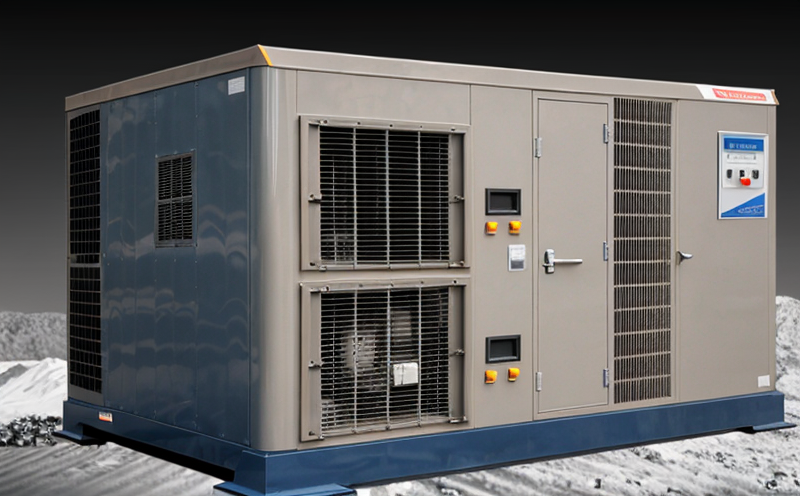IEC 60068-2-1 Cold Storage Environmental Stress Testing
The IEC 60068-2-1 standard specifies procedures for cold storage testing, which is critical in the semiconductor and microchip manufacturing industry. This test simulates the environmental conditions that components may encounter during their lifecycle, ensuring they perform reliably under extreme temperatures.
During this process, specimens are subjected to controlled temperature variations ranging from -40°C to +150°C, with a holding time of at least 2 hours at each temperature. This test helps identify any weaknesses in the design or manufacturing process that could lead to failures in real-world conditions.
The testing is conducted using specialized environmental chambers capable of maintaining precise control over temperature and humidity levels. The specimens are exposed to these conditions for a specified duration, following the exact protocols outlined in IEC 60068-2-1. Post-test analysis includes detailed examination of any changes or failures that occur during the test.
This testing is particularly important for ensuring high reliability and longevity of semiconductor devices. By identifying potential issues early in the development process, manufacturers can improve product quality and reduce costs associated with post-production rework or customer returns.
- Customer Impact: Reduced RMA rates due to improved component reliability.
- Quality Assurance: Enhanced confidence in product performance under extreme conditions.
- R&D Optimization: Faster identification and resolution of design flaws.
- Compliance: Demonstrated adherence to international standards, enhancing market entry.
The benefits extend beyond just the semiconductor industry. By ensuring robustness against cold storage conditions, these tests contribute to the overall reliability of electronic devices across various sectors, including automotive, aerospace, and consumer electronics.
In summary, IEC 60068-2-1 Cold Storage Environmental Stress Testing is an essential step in the quality assurance process for semiconductor manufacturers. It provides critical insights into how components will perform under real-world conditions, thereby minimizing risks associated with product failure and enhancing customer satisfaction.
Benefits
The primary benefit of IEC 60068-2-1 Cold Storage Environmental Stress Testing lies in its ability to identify potential weaknesses in semiconductor devices early in the development process. This proactive approach allows manufacturers to make necessary adjustments before production begins, resulting in higher quality products.
Another significant advantage is the reduction in RMA (Return Material Authorization) rates. By ensuring that components can withstand cold storage conditions, companies minimize returns due to failures caused by environmental factors. This not only improves customer satisfaction but also reduces costs associated with rework or replacements.
In addition to improving product quality and reducing post-production issues, this testing contributes to overall reliability across various sectors. For example, in automotive applications where components must operate reliably even under harsh conditions, these tests are crucial for ensuring long-term performance. Similarly, in aerospace applications where safety is paramount, robustness against cold storage environments is critical.
Furthermore, compliance with international standards such as IEC 60068-2-1 enhances market entry by demonstrating a commitment to quality and reliability. This can be particularly advantageous when entering new markets or expanding into regions with strict regulatory requirements.





